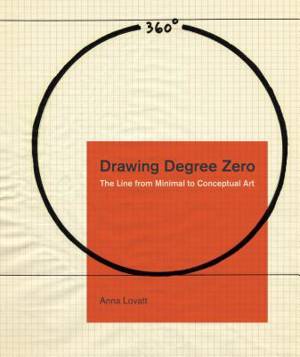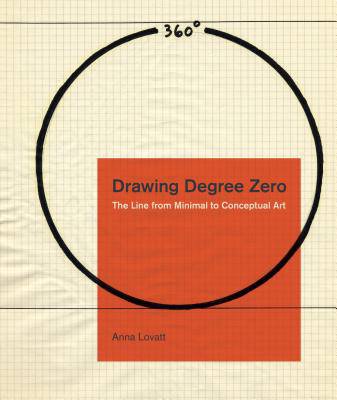
- Afhalen na 1 uur in een winkel met voorraad
- Gratis thuislevering in België vanaf € 30
- Ruim aanbod met 7 miljoen producten
- Afhalen na 1 uur in een winkel met voorraad
- Gratis thuislevering in België vanaf € 30
- Ruim aanbod met 7 miljoen producten
Omschrijving
Drawing Degree Zero examines a pivotal moment in the history of drawing, when the medium was disengaged from its connoisseurial associations and positioned at the forefront of contemporary art. From Mel Bochner's seminal exhibition Working Drawings and Other Visible Things on Paper Not Necessarily Meant to Be Viewed as Art of 1966 to the Museum of Modern Art's major survey Drawing Now ten years later, Anna Lovatt documents this period of restless artistic experimentation and fierce political ambition.
Traditionally considered a preparatory or subsidiary practice, drawing's notational, provisional, and incidental qualities accrued new value in the context of post-Minimal and Conceptual art. Considering the work of Bochner, Sol LeWitt, Rosemarie Castoro, Dorothea Rockburne, and Richard Tuttle, Lovatt explores the strategies these artists used to confound long-standing presumptions about drawing, rendering it systematic rather than autographic, public rather than private, and conceptually rigorous rather than manually dexterous. Drawing Degree Zero argues that these artists pursued a neutral, anonymous mode of inscription analogous to Roland Barthes's concept of "writing degree zero."
A lively examination of the resurgence of interest in drawing, Drawing Degree Zero highlights the medium's ability to foreground issues of authorship, process, location, and participation that remain fundamental to contemporary art. Scholars and art aficionados will welcome Lovatt's insights.
Specificaties
Betrokkenen
- Auteur(s):
- Uitgeverij:
Inhoud
- Aantal bladzijden:
- 240
- Taal:
- Engels
- Reeks:
- Reeksnummer:
- nr. 31
Eigenschappen
- Productcode (EAN):
- 9780271082431
- Verschijningsdatum:
- 25/11/2019
- Uitvoering:
- Hardcover
- Formaat:
- Genaaid
- Afmetingen:
- 211 mm x 249 mm
- Gewicht:
- 1133 g

Alleen bij Standaard Boekhandel
Beoordelingen
We publiceren alleen reviews die voldoen aan de voorwaarden voor reviews. Bekijk onze voorwaarden voor reviews.











